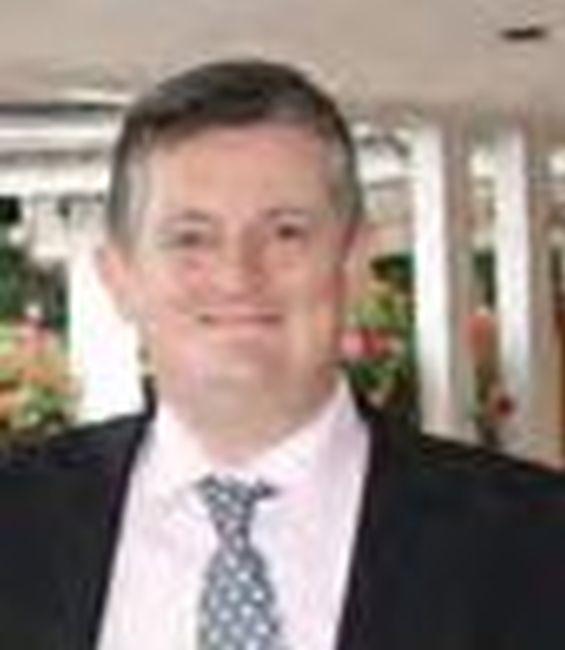
CZECH REPUBLIC
STADLER WINS IN OSTRAVA
Stadler has won a contract with the major Czech city of Ostrava to supply up to 40 new light rail vehicles. They will replace the city’s old fleet, which comprises a variety of Czechoslovak-built types, all of which have been modernised in recent years. The contract is significant as it is the first Stadler has ever achieved for trams in the Czech Republic, where indigenous manufacturers have long dominated the market.
Alongside Skoda Transportation, smaller manufacturer Inekon is based in Ostrava and partly owned by Ostrava’s transport operator Dopravni podnik Ostrava (DPO). Inekon has struggled to win any big orders, but has supplied small quantities of trams to several American cities and undertaken refurbishment work on older trams for Eastern European operators. Another rail engineering firm based in Krnov, near Ostrava, bid for the contract and took unsuccessful legal action to challenge the contract award to Stadler; the company concerned, Krnovske opravarny a strojiry, has not previously built new light rail vehicles.
Stadler will assemble the trams at a factory in Prague, although components will be supplied from a variety of sources. Bodyshells are likely to be sourced from Stadler’s existing plants whilst electrical equipment will be provided by Stadler factories and Vossloh Kiepe (now owned by Knorr-Bremse). The 24.9-metre-long, 2.5-metre wide trams are described by Stadler as belonging to the company’s Tango family of vehicles; the first should be complete by March 2018, with the rest following within two years.
DENMARK
IC4/IC2 SAGA NEARLY OVER?
Danish operator DSB withdrew all its operational AnsaldoBreda-built IC4 DMUs from service in mid-March for inspection due to a range of defects. After a tortuous introduction to service many years late, as reported previously in Modern Railways, the operator had been planning to increase availability from around 30 trains (out of 77 in service) to around 40 daily this year. DSB announced in late 2016 that it would retain the IC4 fleet until 2024 when new EMUs and wider electrification will replace them, although earlier withdrawal remains an option once DSB has sufficient alternative rolling stock. As of early April the IC4 trains were being slowly reintroduced to service; they are normally used for regional services rather than the principal inter-city services for which they were bought.
A total of 82 four-car IC4 trains and 23 two-car IC2 versions were delivered from 2007 to 2013, between four and 10 years behind the original schedule. One train was never delivered to DSB and was instead donated by the Italian government to Libyan leader Muammar Gaddafiin 2009.
Even once delivered, the trains suffered from a wide range of reliability and approval problems and at one stage it seemed likely DSB would return them all to AnsaldoBreda. Instead, a programme of retrofitting improvements undertaken by DSB and Bombardier in Denmark resulted in most trains being accepted for use, although five were withdrawn before entering service to act as a source of spare parts; these will be scrapped by June 2017. DSB says each train yields 480 usable parts (some of which are otherwise unobtainable), ranging in size from engines to internal displays.
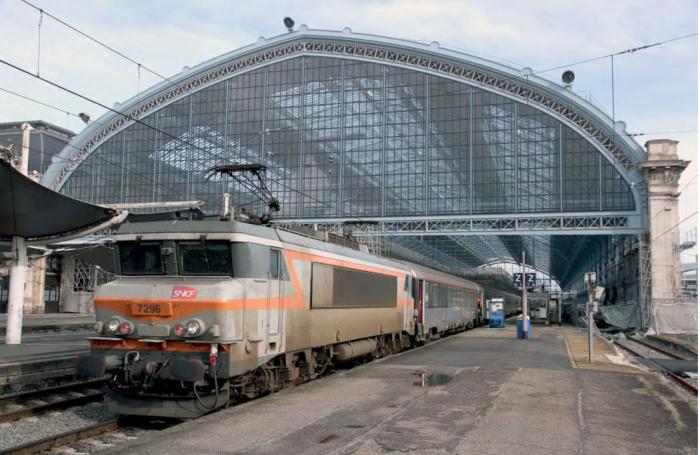
AnsaldoBreda paid DSB compensation representing more than half the purchase price (thereby removing any profit that may have been planned). DSB wrote off the entire Kr2.2 billion (£256 million) value of the IC4 and IC2 fleets in its 2016 accounts. The IC2 fleet was introduced in December 2012 and completely withdrawn in August 2016, and the trains are now stored and up for sale via a German broker. However, as publicly available data shows that they rarely managed more than 10,000km between failures during their brief service history, it is likely any new owner will want to modify them significantly before use.
In August 2009 DSB signed a master agreement with Siemens for the supply of up to 100 Desiro Classic DMUs, although only eight two-car units for local services from Aarhus were ordered to add to the existing DSB fleet of 12 Desiro Classic DMUs. The option for another 92 may have been a contingency arrangement in the event the new IC4 units did not enter service after modification as planned; the option was not taken up, as plans to electrify much of the network have been advanced instead. DSB was also hiring most of the DB Class 605 ICE-TD high-speed DEMU fleet, principally to operate Eurocity services from Hamburg to Danish cities. This arrangement will cease completely in October 2017 – the trains required expensive full overhauls which neither owner DB or lessee DSB were willing to finance, although in practice most ICE-TD trains have already been returned to DB and are now stored in Germany. DSB will revert to using its older IC3 DMUs to operate services from Hamburg to Copenhagen/Aarhus; these three-car sets have a lower capacity than the four car ICE-TDs but have the advantage that two units can travel on the train ferry on the Hamburg to Copenhagen route, allowing longer trains to run at busy times.
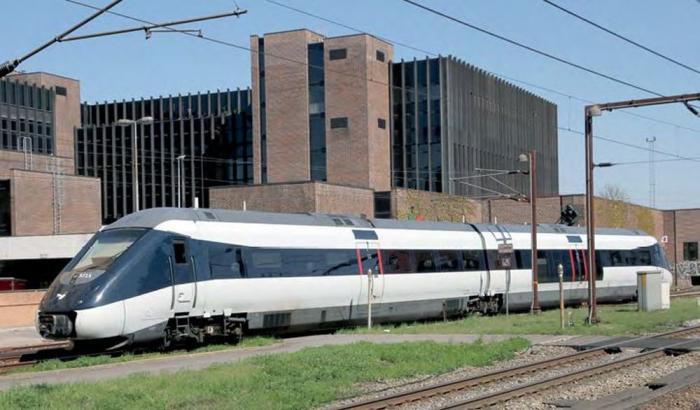
FRANCE
CAF-BUILT LOCOS FOR RATP
Parisian metro and RER operator RATP has awarded CAF a €65 million contract to design and build 12 battery/overhead four-axle electric locos to operate maintenance trains on the RER system, replacing older diesel locos currently used. The contract includes an option for up to six more locos. CAF will build the locos at its Bagneres de Bigorre factory near Tarbes in the south west of France. The first of the 1,000kW locos should be delivered in April 2019.
CAF reported strong financial results for 2016, with orders growing by a record €2.7 billion during the year. Turnover at €1.3 billion was up 2.7% year-on-year, with 79% of the turnover being exports outside Spain. Reported profits were 13% lower than in 2015 at €37 million, but the manufacturer successfully reduced its debts by nearly half during the year, strengthening its long-term position and leaving net debt at €265 million.
TGV ORDER VOLTE-FACE
In early October 2016, the French Prime Minister announced he was ‘saving’ Alstom’s plant in Belfort, Eastern France by ordering 15 additional TGV Duplex trains. These were to replace Corail IC trains on the 200km/h Bordeaux – Toulouse – Marseille classic route (p80, November 2016 issue). This surprise announcement came only weeks after Alstom had confirmed it planned to close the Belfort plant; the French Government owns 20% of Alstom.
It seems the announcement also caught the French Finance Ministry by surprise, not least because it believed the Government had no legal basis to make the order as the contracts for supply of TGV trains were all between Alstom and SNCF; notwithstanding the Prime Ministerial announcement, the Finance Ministry was clear that the order could not happen as proposed. After Government inter-departmental wrangling in early 2017, Alstom announced in early March that SNCF would indeed order the 15 Euroduplex Oceane TGV sets in a contract worth more than €400 million. These 15 new trains, when delivered between 2019 and 2020, will operate with the 40 Euroduplex Oceane TGV sets already on order for use between Paris and Bordeaux. They will replace older single-deck trains, which SNCF is increasingly phasing out as the operator believes their operation is barely profitable given the level of access charges now being levied to use French high-speed lines.
This change of plan means the Bordeaux – Toulouse – Marseille/Nice classic Intercites route no longer has new rolling stock planned. It is likely some form of EMU-based trains will be ordered for the route in the next few years – these are likely to be more economically viable than the slow speed use of TGVs!
FRENCH PRESIDENT OPENS NEW HIGH-SPEED LINE
President Francois Hollande formally opened the new LGV Sud Europe Atlantique high-speed line from Tours to Bordeaux on 28 February at a ceremony at Villognon, near Poitiers. Mr Hollande is not contesting the French Presidential election in May so is guaranteed not to be in post when the line opens to passengers on 2 July. The event received unwelcome worldwide publicity when a police marksman accidentally fired a bullet into the site where the event was happening, injuring two of the participants, fortunately not fatally.
GERMANY
EURODUAL FOR HVLE
German freight operator Havellandische Eisenbahn (HVLE) has become the launch customer for the new Stadler Eurodual six-axle bi-mode locomotive. Stadler inherited the development work for the new Eurodual when it acquired the Vossloh Transportation business based in Valencia. Vossloh had been developing bi-mode concept locos for several years before securing orders for the UK Class 88 and a similar four-axle design for use in South Africa.
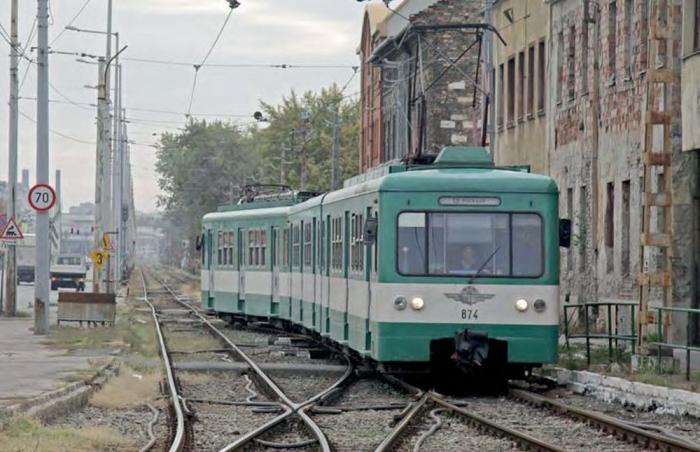
The new six-axle Eurodual design uses a modified but similar bodyshell to the Euro 4000 Co-Co diesel loco, which is in service in France and Spain and has also been sold to PRASA in South Africa. Stadler confirmed at Innotrans in September 2016 that a prototype six-axle bi-mode loco had been built in Valencia and was ready for testing. This loco used the UK Class 68 Caterpillar C175-16 engine for its diesel power source; it is not known what diesel engine will be fitted to the locos ordered by HVLE.
The HVLE Eurodual locos are dual-voltage (15/25kV AC) and are designed for use in Germany. HVLE operates freight services on the sole isolated 25kV AC electrified line in Germany (Rubelandbahn Blankenburg (Harz) – Elbingerode). The new locos will be financed by DAL Deutsche Anlagen-Leasing, and Stadler will undertake maintenance under a full service maintenance agreement.
REFURBISHMENT FOR ICE3
DB Fernverkehr (long-distance) is investing €210 million in a refurbishment programme for its ICE3 fleet of high-speed trains. The operator plans to refurbish all 50 of its Class 403 15kV AC trains and 16 Class 406 multi-system trains. The work will be undertaken by DB’s Nuremberg works between 2017 and 2020 as the trains, which are now an average of 15 years old, also receive a full mechanical overhaul. Three trains will be refurbished in parallel, with the work on each taking around nine weeks; one refurbished train will leave the works every three weeks once the programme is up and running later this year.
The main aspects of the refurbishment programme are:
■ installation of 29,604 new seats of the same design as used in the new ICE4;
■ creation of a larger 20-seater restaurant car area;
■ installation of new luggage storage areas in the middle of passenger coaches to enable better visibility for luggage during journeys;
■ addition of a second wheelchair/ PRM space in each train;
■ installation of 1,280 additional seats in the fleet (around 19 per train);
■ installation of 2,542 new display screens in passenger areas;
■ renewal of all carpets;
■ installation of European Train Control System (ETCS) signalling; this will enable the trains to be used on the new Erfurt to Nuremberg high-speed line, which opens in December 2017 (for Berlin to Munich services).
DB says the refurbishment will make the trains fit for another 15 years’ service.
TENDERS FOR NEW IC TRAINS
DB Fernverkehr has separately issued a tender for the provision of new loco-operated check push-pull single-deck inter-city trains. The trains envisaged will be able to accommodate 485 passengers and will be approved for use in both Germany and Austria plus other undefined ‘European countries’. DB anticipates delivery at the rate of 20 complete trains per year from 2021 onwards.
The tender, announced in early March, is open to suppliers who can demonstrate they have delivered a fully approved for service new-build train in any of Germany, Austria or the Netherlands during the last five years. The tender is open to consortia as well as individual suppliers, with overall quality factors being highlighted alongside price in determining the winning bid. The pre-qualification and bidding process will run from March 2017 to the end of February 2018. DB announced in 2015 the creation of an expanded inter-city network by 2030, with 130 new inter-city trains envisaged to operate, along with replacement of existing rolling stock, most of which is at least 20 years old. So far DB has ordered 44 IC2 double-deck trains from Bombardier, over half of which are now in service.
HUNGARY
BHÉV TO BECOME PART OF MÁV
Whilst national rail operator MAV operates suburban services on its historic network, several suburban railways in the Budapest region, built as a mix of classic rail and light rail operation, have been operated by Budapest city owned Budapesti Helyierdekű Vasut (BHEV) under various organisations since 1933 (although MAV briefly operated them in the early 1950s). Three of the four lines, which are not connected to each other, extend beyond the city boundaries into neighbouring counties.
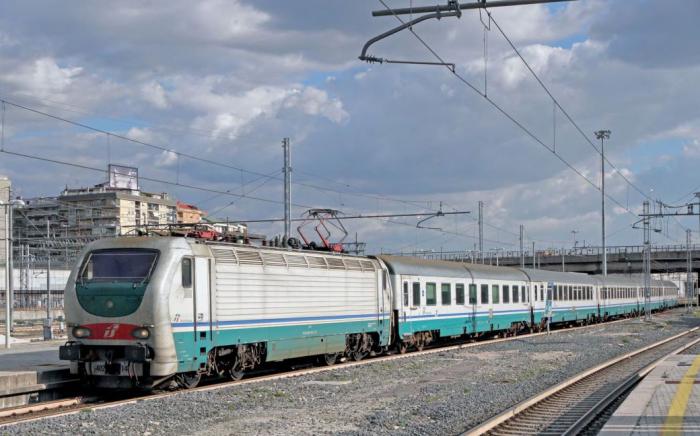
Following much debate, a ‘new’ BHEV company, owned by the city, was created in November 2016, meaning the BHEV operation is now legally separate from the rest of Budapest city transport company BKV. It is intended that the city of Budapest will transfer this new company to national rail operator MAV, although in the short term BHEV will operate on a concession contract basis on behalf of the national transport ministry; however, since late November MAV has been responsible for operations. The BHEV operation currently requires around HUF11 billion (£31 million) in subsidy annually.
Longer term, plans to convert some or all of the BHEV network to either metro or tram lines or to integrate parts into the MAV network are under discussion and evaluation. The current BHEV network uses 1,000V DC EMUs, mostly built in East Germany in the 1970s and, whilst standard gauge, the rolling stock and signalling is incompatible with both the national rail network and the BKV-operated tram and metro systems. The new legal ownership and transfer to MAV should make the acquisition of new rolling stock and infrastructure funding more likely, as EU funding should be easier to obtain.
IRELAND
CONNOLLY STATION RESTORATION UNDER WAY
In January conservation and restoration work commenced on the northern red-brick and sandstone constructed section at Dublin Connolly station, which is used as offices. The building was constructed in around 1879 to the design of the Belfast-born architect John Lanyon and has an Italianate tower which ties in with the towers of the earlier main station building by William Deane Butler. Lanyon was architect to the Great Northern Railway of Ireland, the Belfast and County Down Railway and the Belfast and Northern Counties Railway and was also a prolific railway engineer.
Connolly station is a ‘protected structure’ (equivalent to a listed building) and has received ad-hoc repairs over the years, but has lacked planned preventative maintenance over the last 25 years or so, resulting in a marked deterioration of its condition. The work, undertaken by specialist contractors, is being managed by Iarnrod Eireann, with Dublin City Council being consulted regarding restoration of the protected structures brickwork and leadwork repairs. Brickwork and granite wall capping is being cleaned, while repairs to chimneys and the timber window frames are also included in the work. The project is designed to extend the building’s life for around 100 years. Tim Casterton
ITALY
TEN-YEAR INTERCITY CONTRACT FOR TRENITALIA
Italian national operator Trenitalia has been awarded a 10-year contract, signed in January, to operate Intercity daytime trains and Intercity-Notte overnight services on behalf of the Italian Government.
The contract will ensure that a network of 88 daytime Intercity trains and 20 overnight services will continue to operate, despite many being judged uneconomic in their own right. Many of the services connect far-flung parts of the country with major cities, and 12 million passengers use the services each year; ticket revenue for 2017 is forecast to be €348 million. The contract runs until December 2026, seven years after the likely opening of EU domestic rail services to tendering. Trenitalia will operate 25.1 million train kilometres annually (an increase on the network operated in 2016), although some marginal services may be operated using road vehicles.
Trenitalia has embarked on a refurbishment programme for its Intercity rolling stock and will also redeploy Frecciabianca trains powered by 3kV DC only E414 power cars, replacing loco-operated services. The older Frecciabianca trains are being replaced by newer Pendolino trains, themselves freed up by new Bombardier Zefiro Frecciarossa trains. For the remaining loco-operated trains older Class 444 locos are being replaced, with Class 402 locos likely to be used for most services within the near future. The earlier versions of the Class 402, the Class 402A (built between 1994-96), are being rebuilt as single-ended locos for push-pull use, whilst the later Class 402Bs (built 1997-2000) will become the main Intercity loco.
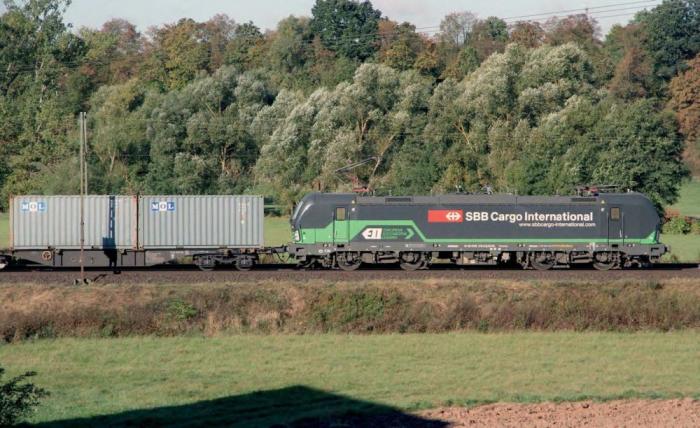
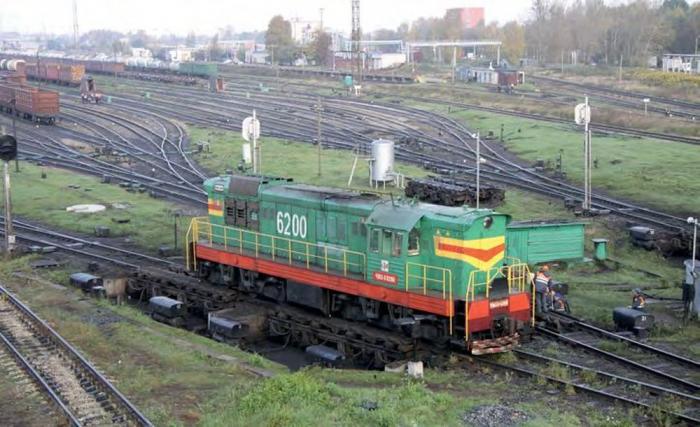
LATVIA
HYDROGEN POWER FOR HEAVY SHUNTER
Latvian national operator LDZ is planning to introduce a heavy shunting loco powered by hydrogen fuel cells. The operator is working with Czech loco rebuild specialist CZ Loko plus Canadian fuel cell manufacturer Ballard Systems to convert and rebuild a prototype loco.
The donor loco for the conversion will be a ChME3 Co-Co. LDZ inherited these locos from the old Soviet fleet, and over 8,000 were built in Czechoslovakia for the USSR and other Eastern bloc countries between 1963 and 1994. LDZ and CZ Loko have previously worked together to rebuild other ChME3 locos as diesel-powered versions. Ballard has previously produced fuel cells used in locomotives or light rail vehicles in Japan, China and the USA; the company’s fuel cells are used in London in some hydrogen-powered buses.
SWEDEN
VECTRON FOR HECTOR
Hector Rail has ordered 15 more Vectron AC locos from Siemens for use primarily in Sweden and Norway. The operator intends to use the 6,400kW locos, all of which will be last-mile fitted (equipped with a small diesel engine for use in yards and on short freight lines), for heavy freight, including timber traffic. Hector Rail had previously ordered five Vectron locos in 2016; these are now in service and are used amongst other duties to operate Stockholm – Malmo Snalltaget open access passenger services on behalf of operator Transdev.
NEW TRAINS FOR THE ROSLAGSBANAN
Stadler is building 22 new 891mm-gauge three-car EMUs for the Roslagsbanan, which is the last narrow-gauge line in Sweden with regular passenger services (several others exist as heritage or seasonal operations). The three-line, 65km-long network serves towns to the north and east of Stockholm and is operated by Stockholm regional rail operator Storstockholms Lokaltrafik AB. The new 60-metre-long 100km/h type X15P trains will be used alongside existing rolling stock to increase service frequencies from 2021 onwards. The contract, awarded in 2016, is worth Kr2 billion (£182 million) and includes an option for a further 45 trains.
SWITZERLAND
NEW ROSCO LEASING NEW SBB INTERNATIONAL LOCOS
Swiss Federal Railways (SBB) freight operator SBB International is to lease 18 new Siemens Vectron Multi-System (MS) electric locos for 15 years following a Europe-wide tender. The locos will be financed by Swiss private banking firm Reichmuth Infrastruktur Schweiz via a newly-created rolling stock leasing company (ROSCO) named LokRoll AG.
SBB International operates freight trains using its own locos all the way from Italy to the German North Sea ports of Hamburg and Bremerhaven, and co-operates with DB Cargo in operating international transit traffic across Switzerland via the new Gotthard Base Tunnel. SBB Cargo International will act as a partner to Reichmuth/LokRoll, supporting procurement, project management and acceptance/warranty procedures for the new locomotives.
